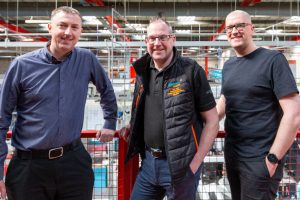Luxfer to complete £110m refinancing

LUXFER Holdings, the Salford-based manufacturer of gas cylinders and composite metals, is on the verge of completing a £110m refinancing.
Newly-filed accounts for the company state that it should conclude the deal by the end of the month, which will consist of a private placing of £40m, a bank term loan of £30m and a revolving credit facility of £40m which it has agreed with “a number of banks and an insurance company”.
The new financing will replace its existing asset-backed facilities and senior loan notes due to expire over the next 18 months.
The refinancing will no doubt have been helped by the fact that the Salford Quays-based company achieved record profits in 2010 despite having to contend with what it described as “continuing weak economic conditions”.
Pre-tax profits more than doubled to £23.7m in 2010 (2009: £9.6m) as it posted a 10% increase in sales to £261.2m.
Chief executive Brian Purves said that the company had benefitted from a “more or less continuous recovery in the markets we serve since the third quarter of 2009”.
“The combined effect of squeezing cash out of the balance sheet during 2009, followed by driving up profit in 2010 has transformed our debt ratios and left the group in a strong position to lower its funding costs during the scheduled refinancing of our debt facilities,” he said.
He added that the business had performed strongly during the second half of 2010 as many customers began restocking.
Luxfer has two principle divisions. Its gas cylinders division provides cylinders used in everything from breathing equipment to fire extinguishers and gas-fired vehicles.
Meanwhile, its Elektron division contains companies like MEL Chemicals and Magnesium Elektron that use metals such as zirconium and magnesium in all manner of compound materials. Magnesium Elektron’s products can be found in anything from aircraft fuselages to mobile phones and in-line skates.
Each division generates roughly half of the company’s revenues, but the Elektron side delivered more of last year’s profits.
The firm said that it had to contend with a “dramatic” rise in the price of some of the rare earths metals it uses during the middle of 2010. Most of these are exported from China, and when the Chinese government restricted export amounts the price of one of these – cenum – rose from $7 per kilo at the start of the year to more than $120 at the end.
The company’s chairman, Peter Haslehurst, said he was “grateful to our customers for their understanding in accepting our surcharges, and to the many industry bodies and government agencies that have been protesting the Chinese action”.
Despite this, Purves said he was “confident the Group’s profitability will not be affected by the price hike in rare earths”.








